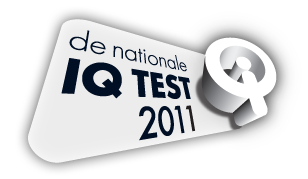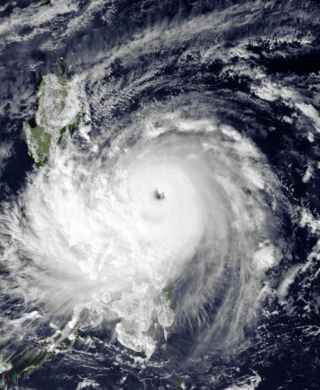Genius is a characteristic of original and exceptional insight in the performance of some art or endeavor that surpasses expectations, sets new standards for the future, establishes better methods of operation, or remains outside the capabilities of competitors. Genius is associated with intellectual ability and creative productivity. The term genius can also be used to refer to people characterised by genius, and/or to polymaths who excel across many subjects.

Mensa is the largest and oldest high-IQ society in the world. It is a non-profit organisation open to people who score at the 98th percentile or higher on a standardised, supervised IQ or other approved intelligence test. Mensa formally comprises national groups and the umbrella organisation Mensa International, with a registered office in Caythorpe, Lincolnshire, England, which is separate from the British Mensa office in Wolverhampton.
LexisNexis is an American data analytics company headquartered in New York, New York. Its products are various databases that are accessed through online portals, including portals for computer-assisted legal research (CALR), newspaper search, and consumer information. During the 1970s, LexisNexis began to make legal and journalistic documents more accessible electronically. As of 2006, the company had the world's largest electronic database for legal and public-records–related information. The company is a subsidiary of RELX.

Test the Nation is a television programme, first broadcast in 2001 by BNN in the Netherlands. The concept is owned by Eyeworks Holding who license it to TV production companies around the world.
Geniocracy is the framework for a system of government which was first proposed by Raël in 1977 and which advocates a certain minimal criterion of intelligence for political candidates and also the electorate.
The Wechsler Adult Intelligence Scale (WAIS) is an IQ test designed to measure intelligence and cognitive ability in adults and older adolescents. For children between the ages of 6 and 16, Wechsler Intelligence Scale for Children (WISC) is commonly used.

Typhoon Gay, also known as the Kavali Cyclone of 1989, was a small but powerful tropical cyclone which caused more than 800 fatalities in and around the Gulf of Thailand in November 1989. The worst typhoon to affect the Malay Peninsula in thirty-five years, Gay originated from a monsoon trough over the Gulf of Thailand in early November. Owing to favorable atmospheric conditions, the storm rapidly intensified, attaining winds over 120 km/h (75 mph) by 3 November. Later that day, Gay became the first typhoon since 1891 to make landfall in Thailand, striking Chumphon Province with winds of 185 km/h (115 mph). The small storm emerged into the Bay of Bengal and gradually reorganized over the following days as it approached southeastern India. On 8 November, Gay attained its peak intensity as a Category 5-equivalent cyclone with winds of 260 km/h (160 mph). The cyclone then moved ashore near Kavali, Andhra Pradesh. Rapid weakening ensued inland, and Gay dissipated over Maharashtra early on 10 November.

Typhoon Nina, known in the Philippines as Typhoon Sisang, was the most intense typhoon to strike the Philippines since Typhoon Irma in 1981. Typhoon Nina originated from an area of convection near the Marshall Islands in mid-November 1987. It gradually became better organized, and on November 19, was first classified as a tropical cyclone. Moving west-northwest, Nina attained tropical storm intensity that evening. Late on November 20, Nina passed through the Chuuk Lagoon in the Federated States of Micronesia. After a brief pause in intensification, Nina intensified into a typhoon on November 22. Two days later, the typhoon intensified suddenly, before attaining its peak 10 minute intensity of 165 km/h. During the afternoon of November 25, Nina moved ashore in Southern Luzon at the same intensity. It gradually weakened over land, before entering the South China Sea and turning to the north. By November 30, Nina dissipated.
A high-IQ society is an organization that limits its membership to people who have attained a specified score on an IQ test, usually in the top two percent of the population or above. These may also be referred to as genius societies. The largest and oldest such society is Mensa International, which was founded by Roland Berrill and Lancelot Ware in 1946.
The Culture Fair Intelligence Test (CFIT) was created by Raymond Cattell in 1949 as an attempt to measure cognitive abilities devoid of sociocultural and environmental influences. Scholars have subsequently concluded that the attempt to construct measures of cognitive abilities devoid of the influences of experiential and cultural conditioning is a challenging one. Cattell proposed that general intelligence (g) comprises both fluid intelligence (Gf) and crystallized intelligence (Gc). Whereas Gf is biologically and constitutionally based, Gc is the actual level of a person's cognitive functioning, based on the augmentation of Gf through sociocultural and experiential learning.

The Mega Society is a high IQ society. It was founded in 1982 by Ronald K. Hoeflin to facilitate psychometric research.
Richard G. Rosner is an American television writer and reality television personality known for his alleged high intelligence test scores and his unusual career. There are alleged reports that he has achieved some of the highest scores ever recorded on IQ tests designed to measure exceptional intelligence. He has become known for taking part in activities not usually associated with geniuses. Rosner claims that he has worked as a stripper, roller-skating waiter, bouncer, and nude model. He has appeared in numerous documentaries and profiles about his activities and views. He has also appeared in both a Domino's Pizza commercial as well as one for Burger King and sued the quiz show Who Wants to Be a Millionaire over an allegedly flawed question he missed as a contestant in 2000. He wrote and produced for quiz shows and several programs produced by Jimmy Kimmel, including The Man Show, Crank Yankers, and Jimmy Kimmel Live!

Cyclonic Storm Keila was the first named storm of the 2011 North Indian Ocean cyclone season. A weak system for much of its duration, Keila developed in the western Arabian Sea in late October 2011, amid an area of marginally favorable conditions. On November 2, it briefly organized enough to be classified as a cyclonic storm, which has maximum sustained winds of at least 65 km/h (40 mph). Given the name Keila by the India Meteorological Department (IMD), the storm quickly moved ashore southern Oman near Salalah, and weakened while meandering over the country. The remnants soon after moved offshore, dissipating on November 4.

Typhoon Alex, known in the Philippines as Typhoon Etang, affected the Taiwan, China, and South Korea during July 1987. Typhoon Alex developed from the monsoon trough that spawned a tropical disturbance late on July 21 southwest of Guam which organized into a tropical depression shortly thereafter. The system steadily became better organized, and the next day, a tropical depression had developed. Satellite intensity estimates gradually increased, and on July 23, the depression intensified into Tropical Storm Alex. After initially tracking west-northwest, Tropical Storm Alex started tracking northwest. An eye developed on July 24, and on the next day, Alex was classified as a typhoon, when Alex attained its peak intensity of 120 km/h (75 mph) and a minimum barometric pressure of 970 mbar (29 inHg). Alex weakened while tracking more northward, though interaction with Taiwan resulted in a more westward track starting on July 27. The storm struck near Shanghai as a tropical storm, and weakened over land, although it remained identifiable through August 2.

"Think of the children" is a cliché that evolved into a rhetorical tactic. In the literal sense, it refers to children's rights. In debate, it is a plea for pity that is used as an appeal to emotion, and therefore may become a logical fallacy.

Severe Tropical Cyclone Joy struck Australia in late 1990, causing the third highest floods on record in Rockhampton, Queensland. This cyclone began as a weak tropical low near the Solomon Islands, and initially moved westward. On 18 December, it was named Joy, becoming the 2nd named storm of the 1990–91 Australian region cyclone season. After turning southwest, Joy developed a well-defined eye and strengthened to maximum sustained winds of 165 km/h (103 mph) while approaching Cairns in Far North Queensland. Brushing the city with strong winds, the cyclone soon weakened and turned southeast. Joy later curved back southwest, making landfall near Townsville, Queensland on 26 December. It dissipated the next day; remnant moisture continued as torrential rainfall over Queensland for two weeks.
Decision quality (DQ) is the quality of a decision at the moment the decision is made, regardless of its outcome. Decision quality concepts permit the assurance of both effectiveness and efficiency in analyzing decision problems. In that sense, decision quality can be seen as an extension to decision analysis. Decision quality also describes the process that leads to a high-quality decision. Properly implemented, the DQ process enables capturing maximum value in uncertain and complex scenarios.
A self-test of intelligence is a psychological test that someone can take to purportedly measure one's own intelligence.

Typhoon Ofelia, known as Typhoon Bising in the Philippines, was the first of two typhoons in 1990 to directly affect the Philippines within a week. Typhoon Ofelia originated from an area of disturbed weather embedded in the monsoon trough situated near the Caroline Islands. Slowly organizing, the disturbance tracked westward, and was designated a tropical depression on June 15. After an increase in convection, the depression was upgraded into a tropical storm on June 17. On June 19, Ofelia turned northwest and after development of a central dense overcast, Ofelia was upgraded into a typhoon late on June 20. After turning north, Ofelia obtained its maximum intensity following the development of an eye. The typhoon skirted past the northeastern tip of Luzon and near the east coast of Taiwan, commencing a rapid weakening trend. On the evening on June 23, Ofelia struck the southern portion of Zhejiang. The storm then began to track north, recurving towards the Korean Peninsula. The storm tracked through the province of Jiangsu, and at 00:00 UTC on June 24, transitioned into an extratropical cyclone, only to merge with a frontal zone on June 25.









